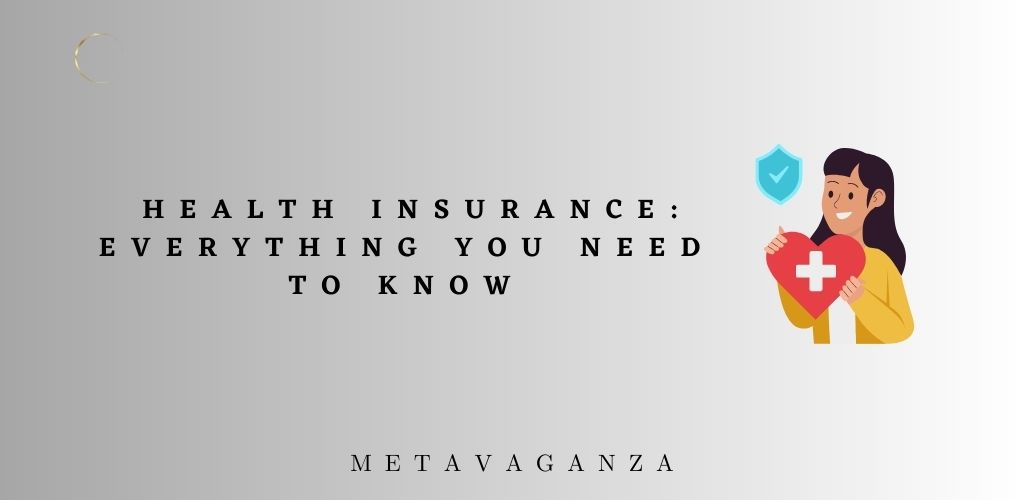Insurance Marketplace – Health insurance is an essential financial protection that can provide you with peace of mind when it comes to your medical expenses. However, understanding health insurance can be a daunting task for many people. In this article, we will explain everything you need to know about health insurance, from the basics to the more advanced concepts.
What is Health Insurance?
Health insurance is a contract between an individual and an insurance company that provides financial protection for medical expenses in exchange for a monthly or yearly premium payment. Health insurance can cover a wide range of medical expenses, including doctor visits, hospitalizations, surgeries, and prescription drugs.
Types of Health Insurance
There are several types of health insurance plans available, including individual health insurance, group health insurance, Medicare, and Medicaid.
Individual Health Insurance
Individual health insurance is a policy that is purchased by an individual or family. These plans are typically more expensive than group plans and may have higher deductibles and out-of-pocket maximums.
Group Health Insurance
Group health insurance is a policy that is purchased by an employer or organization for their employees or members. These plans are usually more affordable than individual plans and may have lower deductibles and out-of-pocket maximums.
Medicare
Medicare is a federal health insurance program that provides coverage for people aged 65 and over, as well as people with certain disabilities or medical conditions.
Medicaid
Medicaid is a joint federal and state program that provides health insurance for people with low incomes.
Benefits of Health Insurance
There are several benefits to having health insurance, including:
- Financial protection: Health insurance can provide financial protection for unexpected medical expenses, which can be costly.
- Access to medical care: With health insurance, you can access medical care and treatments that may not be affordable otherwise.
- Peace of mind: Knowing that you have health insurance can provide peace of mind, especially during times of illness or injury.
How Does Health Insurance Work?
Health insurance works by spreading the financial risk of medical expenses among a large group of people. This means that the cost of medical care is shared among policyholders, reducing the financial burden on any one individual.
Premiums
Premiums are the monthly or yearly payments that policyholders make to their insurance company in exchange for coverage. The amount of the premium will depend on several factors, including the type of plan, the level of coverage, and the policyholder’s age and health status.
Deductibles
A deductible is the amount that a policyholder must pay out-of-pocket before their insurance coverage kicks in. For example, if a policy has a $1,000 deductible, the policyholder must pay $1,000 in medical expenses before their insurance will start paying for their care.
Coinsurance
Coinsurance is the percentage of medical expenses that a policyholder is responsible for paying after their deductible has been met. For example, if a policy has a 20% coinsurance rate, the policyholder will be responsible for paying 20% of their medical expenses.
Out-of-Pocket Maximum
An out-of-pocket maximum is the maximum amount that a policyholder will have to pay out-of-pocket for medical expenses in a given year. Once this amount is reached, the insurance company will pay for all remaining covered expenses.
Choosing the Right Health Insurance Plan
Choosing the right health insurance plan can be a daunting task, but it’s an important decision that can have a significant impact on your financial well-being. When choosing a plan, consider the following factors:
- Cost: Consider the monthly premium, deductible, coinsurance, and out-of-pocket maximum.
- Coverage: Make sure the plan covers the medical care you need, including doctor visits, hospitalizations, and prescription drugs.
- Network: Check to see if your preferred doctors and hospitals are in-network.
- Flexibility: Consider whether you need a plan with a lot of flexibility or if you’re willing to sacrifice flexibility for lower costs.
Common Terms and Definitions
Understanding common health insurance terms and definitions is essential when navigating the world of health insurance. Here are a few key terms to know:
Network
A network is a group of doctors, hospitals, and other healthcare providers that have agreed to provide services to policyholders at discounted rates. In-network providers are typically less expensive than out-of-network providers.
Copay
A copay is a fixed amount that a policyholder pays for a medical service, such as a doctor’s visit or prescription drug.
HMO
A Health Maintenance Organization (HMO) is a type of health insurance plan that requires policyholders to choose a primary care physician who will manage their care and provide referrals to specialists as needed.
PPO
A Preferred Provider Organization (PPO) is a type of health insurance plan that allows policyholders to see any doctor or specialist they choose, but they will pay less if they stay in-network.
EPO
An Exclusive Provider Organization (EPO) is a type of health insurance plan that requires policyholders to see providers within the plan’s network, except in cases of emergency.
Tips for Using Your Health Insurance
Here are a few tips for using your health insurance effectively:
- Know your coverage: Understand what services are covered by your plan and what your out-of-pocket costs will be.
- Stay in-network: Whenever possible, choose in-network providers to save money on medical expenses.
- Review your bills: Make sure you’re not being charged for services you didn’t receive and that your bills are accurate.
- Take advantage of preventive care: Many health insurance plans cover preventive care services, such as annual check-ups and vaccinations, at no cost to policyholders.
How to File a Health Insurance Claim
If you receive medical care and want to file a health insurance claim, follow these steps:
- Obtain a claim form from your insurance company.
- Fill out the claim form with all necessary information, including your policy number and the date of service.
- Attach any required documentation, such as a receipt or medical record.
- Submit the claim form to your insurance company, either online or by mail.
- Wait for your insurance company to process the claim and pay any covered expenses.
Conclusion
Health insurance is an essential financial protection that can provide peace of mind and access to medical care. By understanding the basics of health insurance, you can make informed decisions about your coverage and protect yourself from the financial burden of unexpected medical expenses.



[…] Once you have a policy in place, you’ll be able to access medical care from a network of healthcare providers in your host country.RELATED: Understanding Health Insurance: Everything You Need to Know […]
[…] artikel yang lalu kita telah membahas tentang pentingnya asuransi kesehatan atau Health Insurance bagi kita dan keluarga. Nah kali ini kita akan bahas tentang Aplikasi Tahlil Dan […]